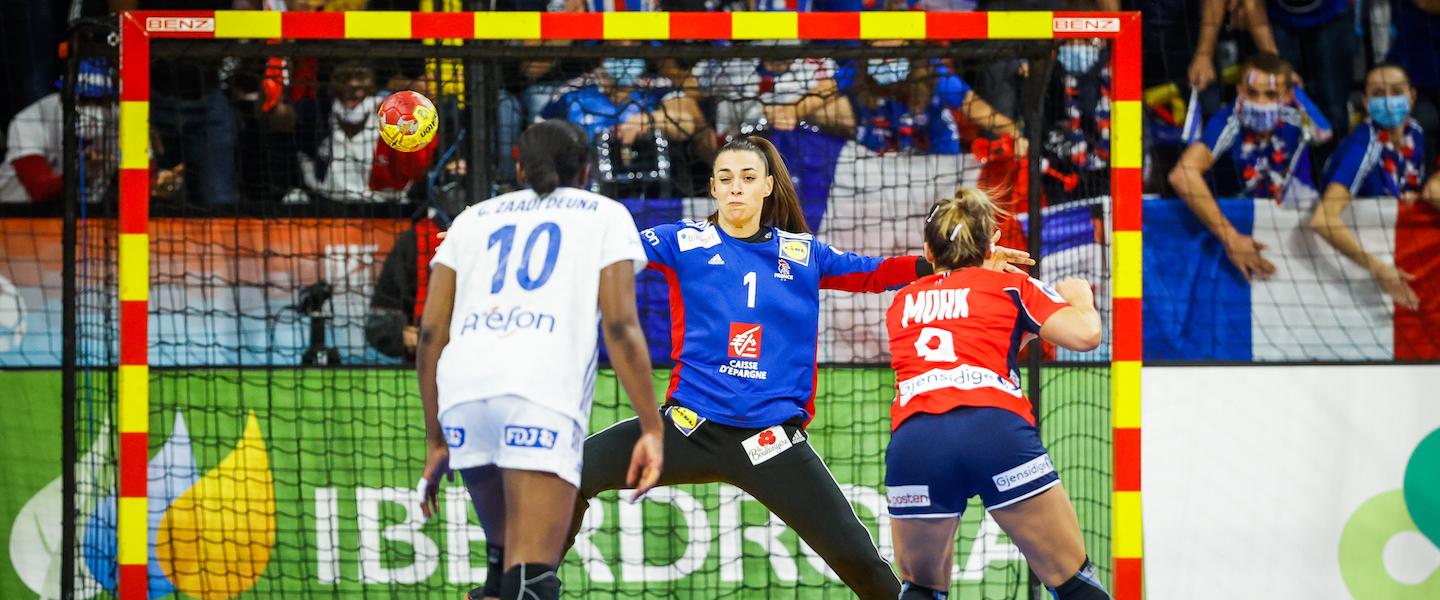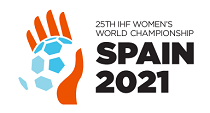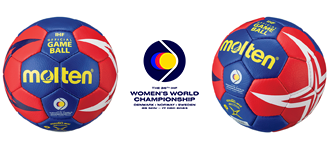Five talking points after a crazy final weekend at Spain 2021
20 Dec. 2021

The final at the 25th IHF Women’s World Championship was one for the ages, with Norway mounting an otherworldly comeback against France, one of the biggest in history in this stage of the world handball flagship competition, to secure their fourth gold medal.
With their 29:22 win, the Scandinavian side jumped on top of the all-time medal standings, with four gold medals, four silver medals and three bronze medals, being on the podium in 11 of the last 17 editions of the IHF Women’s World Championship. What did we learn after Norway’s win against France and after Denmark secured the bronze medal against Spain?
Fifth unbeaten champion since 1993
Improving their own record, Norway secured their 30th medal in major international competitions and their 11th at the IHF Women’s World Championship with their 29:22 win against France in Granollers on Sunday,. Their fourth gold medal, which ties Russia as the team with the most wins in the history of the competition, was also a special one for the Scandinavian powerhouse, that finished the tournament unbeaten for the first time, after dropping a game each time when they lifted the trophy, at Denmark/Norway 1999, Brazil 2011 and Denmark 2015.
Since the introduction of the knockout format in the competition in 1993, only four teams have managed to win the trophy without dropping a single game – the Republic of Korea at Austria/Hungary 1995, Russia at Italy 2001 and Russia 2005 and Brazil at Serbia 2013. Norway signed their names on that list on Sunday when they secured the title with eight wins and a single draw, 30:30 against Sweden in the main round.
Stick to the plan!
Easy to say, hard to do, regardless of the experience or the intrinsic value of the team that takes the court. Norway are no pushovers, they have tons of experience and probably one of the best players of all-time in their positions, but were clearly lagging behind at the break in the final against France, down four goals, 12:16. While other teams might have crumbled under the pressure, Norway embraced it with both hands, took off early in the second half, tied the game in four minutes and then never looked back until the final seconds, when all their players were up on the bench and celebrating.
Norway did not change anything in the second part, rather relied on what they do best and executed the plan to perfection. There was calm, cold minds and ice in their veins, as they mounted a comeback for the ages, limiting France – remember, the reigning Olympic champions – to only six goals in the second half, the lowest number in a final at the IHF Women’s World Championship since 1973, when Romania scored only four times against Yugoslavia in the last 30 minutes, in their 11:16 loss. Their goalkeeping was superb, their defence got the stops they needed to create chances via fast breaks, while also winning the mental battle, as their opponents were clearly drained. It is a lesson learnt with difficult losses in the past, but one that could be learnt by many teams who find themselves in difficult situations.
Line players become paramount in handball
Line players were often discarded in the past decades, with the focus clearly being on the backs, the engine of the team, who exchange the most passes between them to set up the attack. The trend is, however, changing in modern handball, as displayed at Spain 2021, when Norway’s Kari Brattset Dale, a line player, was named the MVP of the competition thanks to her amazing efficiency in attack and her penchant of doing the dirty work in the centre of the defence, where she usually faces the most potent players of the opponent’s attack. Dale, now aged 30, made her debut for her national team late in her career, in 2016, but has since won the gold and the silver medals at the IHF Women’s World Championship, gold at the Women’s EHF EURO 2020, and bronze at the Olympic Games Tokyo 2020. And she became the first-ever line player to take the MVP award – with some amazing numbers, while definitely passing the eye test in her importance for Norway’s big win.
Brattset Dale was also the second-best scorer for Norway and the 10th at Spain 2021 with 38 goals, and missed only eight shots throughout the championship for a 83% shooting efficiency, the highest among the top 30 scorers in the competition. Her importance for Norway’s win cannot be understated, as she also registered nine blocks during the competition, the fifth-most, while her eight steals were bettered by only five other players at the World Championship.
The All-stars impress at Spain 2021
While Dale was named the MVP of the competition, four nations were represented in the All-star Team at Spain 2021, namely the four semi-finalists. It was fitting that those teams sent players, as they became the first in the history of the competition to secure their berths among the top four sides without dropping a single game until the penultimate act. As hosts Spain were left empty handed and disappointed after missing out on a medal after their loss against Denmark, their captain Carmen Martin was named the All-star right wing, the second time she has taken the award, exactly 10 years after being selected at Brazil 2011.
Denmark’s goalkeeper, Sandra Toft, who made the most saves at Spain 2021, 80, for an outstanding 43% efficiency, and was named the hummel Player of the Match three times – against the Czech Republic in the main round, against Brazil in the quarter-finals and in the bronze-medal game against Spain. France’s left wing, Coralie Lassource, centre back, Grace Zaadi Deuna and line player Pauletta Foppa, also secured their places with their all-around displays, while Norway sent two players, left back Henny Reistad and right back Nora Mork, coincidentally their top two scorers, with 43 and 38 goals in the competition.
What about Denmark?
Exactly one year ago, Denmark were conceding a painful loss against Croatia in the bronze-medal game at the Women’s EHF EURO 2020, which they hosted. Learning from the past mistakes is still paramount to success in handball and this is exactly what the Scandinavian side did over the past year. Denmark fought back from the semi-final loss against France, 22:23, to secure their first medal in a major international tournament since the bronze at Serbia 2013, a huge joy for a young generation, that is always aiming for improvement.
Backed by two of the top-three goalkeepers in the competition – Althea Reinhardt, who saved 52% of the shots she faced, and Sandra Toft – and with an outstanding defence that conceded 20.2 goals, Denmark lost only one game at the IHF Women’s World Championship for the second time ever, after their title-winning campaign at Germany 1997. They are leaving Spain 2021 with their heads held up high, focusing on the future, as they will co-host the 26th IHF Women’s World Championship with Sweden and Norway in December 2023.






